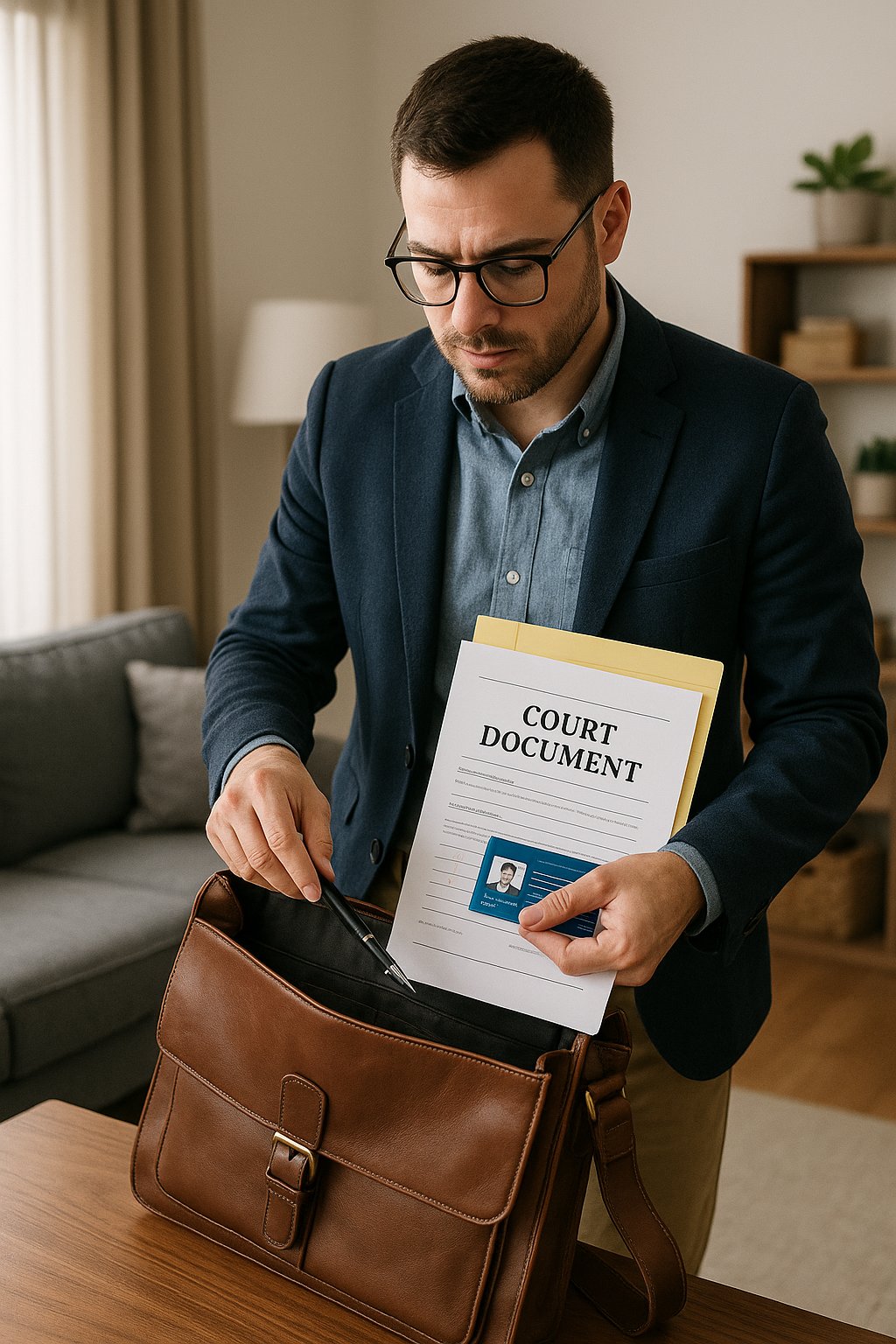How to prepare for a court hearing in the Netherlands?

Attending court can be stressful, especially if you’re unfamiliar with the process or navigating it in a foreign language. Being well-prepared can help you feel more confident and reduce anxiety on the day of your hearing. This article explains what to bring and what to expect when attending court in the Netherlands.
What to bring with you
- Identification: Always take valid ID with you (passport, residence permit, or Dutch ID). Usually nobody checks it, but you are required to have it with you.
- Pen and paper: During the court hearing you may only speak when the judge invites you to. However, when others are talking, it often triggers thoughts or things you’d like to respond to. Writing down your points as they come up helps you remember what you want to say later.
- Notes or questions: If you expect to speak during the hearing, bring some brief notes or reminders. This can help you stay focused and ensure you don’t forget anything important.
- Documents your lawyer advised: If you have a lawyer, follow their advice on what to bring – such as supporting documents, evidence, or other paperwork relevant to your case.
When you arrive at the court building
If you are represented by a lawyer, they may meet you at the entrance. In that case, they will guide you to the right place. If you are going alone, or meeting your lawyer at the courtroom, here’s how the process usually goes:
- Ask at the entrance desk where you are expected (for example, “I have a hearing today at 3 pm, my name is Peter Pan”). The staff will let you know which floor to go to and which desk to report to.
- Go through security. This is similar to airport security:
- Place your bag on the belt.
- Walk through a metal detector.
- Sharp objects like knives must be handed in and can be picked up when you leave.
- Find the correct desk.
- Some buildings have only one desk per floor, while others use lettered desks (e.g. “3rd floor, desk F”).
- There will usually be signs to guide you.
Recognising court staff
Court staff and court security all wear uniforms with the official Rechtspraak (Dutch judiciary) logo. This makes it easy to recognise them. If you’re unsure where to go or need help, feel free to approach someone in uniform – they are there to assist.
Registering your arrival
Once you reach the correct floor and – if applicable- the correct desk:
- Speak to the court staff (bode) and register your name and the case you’re attending.
- The bode will let the judge know when all parties have arrived, so the hearing can start.
- You can also ask them if your hearing is expected to start on time.
Be prepared for delays
Although courts plan hearings with estimated time slots, delays are common. Some cases take longer than expected – especially when people need time to speak or when more explanation is needed. This means your hearing may not start exactly on time, even if you were early. It can be frustrating, but it’s part of making sure every case – including yours – gets the attention it deserves.
Conclusion
Being prepared for your court hearing can ease your nerves and help things go more smoothly. Bring your ID, your notes, and any documents your lawyer recommends. Follow instructions from uniformed court staff and try to stay calm – even if your case starts later than expected. You don’t need to know everything. Just show up, be ready, and trust the process.
Disclaimer: The information provided on this website is for general informational purposes only and is not legally binding. Although we strive for accuracy, the content may contain errors. If you notice any mistakes, please let us know by contacting us via the contact form located at the bottom of the page.
Picture : Created by Sora/ ChatGPT

